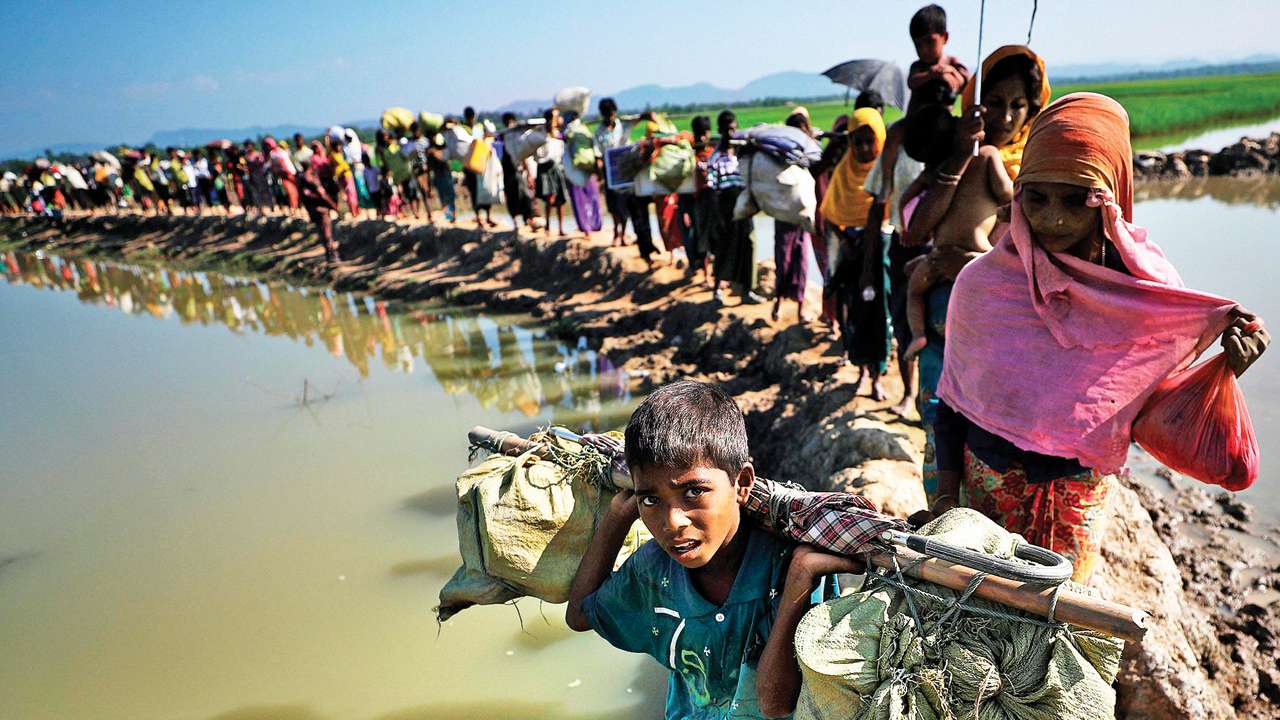
The ultimate test of the success of India’s foreign policy would be whether India prevails in the neigbourhood and its writ runs when another foreign force comes to play in the region. After all, every Indian would wish to see India and Indians liked, accepted, respected and their influence grow in the neighbouring countries.
Given this desire, there were great expectations when government leaders of SAARC nations were invited to the swearing-in of Narendra Modi as Prime Minister in 2014. However, since then, much has happened in India’s relations with not only Pakistan but also Nepal, Myanmar, Bangladesh, Sri Lanka and Bhutan. Despite the positives, as matters stand today, India seems to have been outflanked in its neighbourhood by China.
China is emerging as a South Asian power and its sway is increasing in a region that has traditionally been considered India’s “zone of influence.” The most overwhelming reminder of this is provided by China mediating between Bangladesh and Myanmar for a solution to the vexed Rohingya issue.
When the Rohingyas began fleeing after the army’s crackdown in Myanmar’s Rakhine state, there was much concern in the region, particularly in Bangladesh and India. As the turbulence spiralled and the flood of Rohingya refugees in Bangladesh grew to 620,000, there was a worldwide concern; and, shock over the silence of Nobel laureate and Myanmar State Counsellor Aung San Suu Kyi’s over the “ethnic cleansing”. Her acquiescence was condemned in many quarters.
India erred on the side of caution and shared Myanmar’s perception of the Rohingyas as a “security threat”, i.e, the likelihood of Islamist terrorists exploiting the turmoil in Rakhine state to strike elsewhere in the region. After its initial wholehearted support — based on security perceptions — to the government in Myanmar, New Delhi relented to emphasise the humanitarian aspect. The international outcry against the genocidal crackdown made New Delhi retreat from its initial position and airlift supplies for relief and rehabilitation to Bangladesh. This shift in India’s position was appreciated in important quarters.
India’s turnaround on the Rohingya refugee problem — with the humanitarian aspect taking precedence over security issues — ought to have been followed by strategic moves and greater diplomatic activism. The absence of these appear to have provided Beijing the kind of opening it wanted to make its presence felt in South Asia.
Instead of striking the appropriate note and making the right strategic moves as befits a regional superpower, New Delhi dithered, and Beijing lost no time in seizing the moment. China acted swiftly by declaring itself as “a friend of both Myanmar and Bangladesh” and grabbed the opportunity with both hands. Beijing offered to play “a constructive role for the appropriate handling of the Rakhine state issue”.
Declaring that China believed Myanmar and Bangladesh could “work out a mutually acceptable way to end the crisis”, Chinese Foreign Minister Wang Yi mooted a three-stage solution. The first stage is a ceasefire on the ground to return stability and order, and to stop people fleeing. The second stage, when ceasefire takes effect, is Myanmar-Bangladesh talks to find a feasible solution for the return of refugees; followed by a long-term solution based on poverty alleviation. With the violence ended, the aim of the first stage is said to have been achieved.
In the next stage, China can be expected to entrench itself as a mediator between Myanmar and Bangladesh. This would pave the way for the long haul when China will stay put in Myanmar as the conductor of poverty-alleviation schemes. The strategy is so spectacularly simple. Surely, this cannot be music to the powers that be in New Delhi.
It is surprising that India did not rise to the occasion, leverage its diplomatic strengths in Bangladesh and Myanmar, assume a position of (South Asian) leadership and propose a solution — all of which it could have done easily.
Myanmar is crucial to the success of India’s Act East policy. The Rohingya crisis provided an opportunity for India to strengthen its bilateral relationship; become a trusted mediator between Bangladesh and Myanmar; and, acquire strategic depth in the region through humanitarian intervention and sustained economic engagement.
Far from that, India will be now confronted with a China that may be more entrenched in the Act East bridge; and, encouraged to pursue with more vigour both its One Belt One Road (OBOR) initiative and Maritime Silk Route. China has already announced plans for a China-Myanmar Economic Corridor which is bound to pose challenges to India’s influence and interests in the region.
China thus gaining ground as a long-term player in Bangladesh and Myanmar is bound to have repercussions elsewhere in South Asia, with other countries weighing afresh their options vis-à-vis India and China. Nepal, where elections are being held under a new constitution, is also the happy hunting ground for China. The Left Alliance of the communist parties makes no bones about its “tilt” towards China while anti-India rhetoric is running high.
Chinese “investments” in Nepal, including its “political investments” look promising at present and this could further erode India’s influence in the region. The outcome of the federal and provincial elections in Nepal would have a long-term bearing on its relations with both India and China.
It is high time that India raised its game in the neighbourhood. The level of the game should match the stakes. As the stakes are getting higher, the political, diplomatic and strategic “investments” also need to be raised. This could be another ‘Great Game’ in the making and India must do whatever it takes to stay on top of the game. There is a rich irony that China, under a Communist party dictatorship, should score on human rights (of Rohingya refugees) over India, which is the world’s largest democracy.
The author is an independent political and foreign affairs commentator. Views expressed are personal.